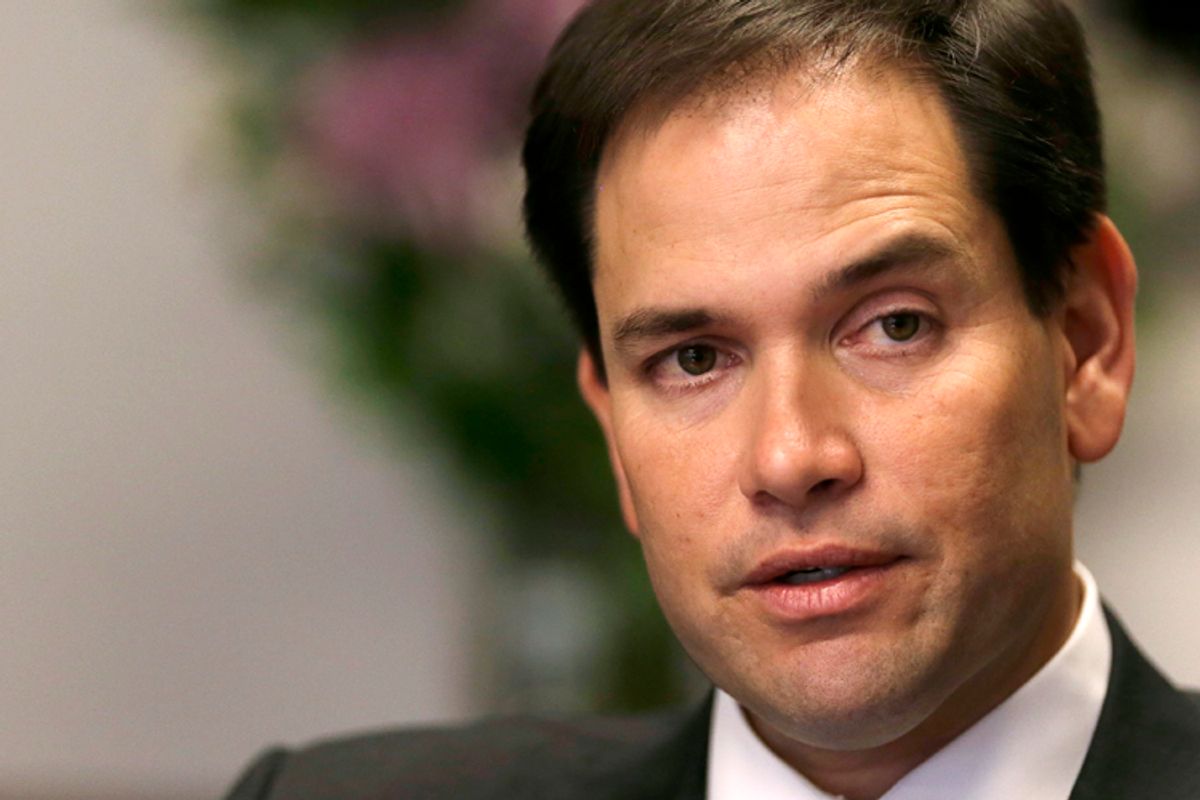In regard to what is to be done when holding the reins of power, leftists and liberals have plenty of disagreements. But when the two groups start bickering with one another, at least in my experience (which is usually online), the major source of tension isn’t over policy so much as it is over politics. Or to put it another way, the fighting is often more about style than substance, with liberals calling leftists rigid, narrow-minded, and sanctimonious utopians; while leftists accuse liberals of being opportunistic hypocrites who lack the courage of their supposed convictions.
Nine times out of 10, of course, the whole fight is a waste of everyone’s time and has more to do with the narcissism of small differences than anything truly political or important. But every now and then, one of the criticisms levied actually does speak to a fundamental difference between the two sides’ worldviews. And as I read the latest New York Times dispatch from the celebrated Thomas B. Edsall — an exceedingly credulous look at the “reformicons” and the GOP’s tentative embrace of the politics of inequality — I couldn’t help feeling that the leftist caricature of the liberal as fearful of conflict and utterly desperate to find common ground with conservatives might have a point.
I’m a fan of Edsall’s work, and he’s probably forgotten more about American politics and journalism than I’ll ever know. Still, the reality is that his reformicon profile, while being far from the worst of an already voluminous genre (a distinction that goes to Sam Tanehaus’ piece from last summer) suffers from the same mistakes as nearly all of the rest. It exaggerates the reformicons’ influence, it minimizes their conservative orthodoxy, and it ignores the fact that they lack the one crucial element of any successful political reform movement: a dedicated constituency. I’ve said it once before but it bears repeating: There is much less to the reformicon project than meets the eye. It’s the Potemkin village of political movements.
It’s a shame that Edsall’s piece devotes so much of itself to puffing up the reformicons, because I think it’s pretty incisive otherwise. When Edsall argues that the GOP’s halting movements in the direction of talking about inequality (or what they prefer to call a lack of “opportunity”) should unnerve Democrats, he’s right. If Hillary Clinton is indeed the Dem nominee, she won’t be able to assume Republicans will cede the issue of economic fairness to her campaign. True, early indicators suggest that the GOP plan for combating inequality will be to promote the same supply-side nostrums they’ve peddled since 1980 — but to do it while saying the word “opportunity” a bunch. But as George W. Bush proved in 2000, a candidate can absolutely lie his ass off and still win.
In fairness, I’d imagine Edsall would disagree with my characterization of the likely policy results if a Republican won the presidency in 2016 with a campaign that’s at least ostensibly about inequality — excuse me, I mean “opportunity.” Throughout his piece, he comes off as genuinely impressed with the coterie’s proposed breaks from the anti-government absolutism that’s been dominating the GOP in the Obama years. He praises the willingness to resist conformity that Sens. Mike Lee and Marco Rubio showed last year by unveiling proposed revisions to the tax code that’d increase the refundable childcare credit substantially. The plan is admittedly better than Rubio’s ideas for the earned income tax credit. But as far as policy substance goes in Edsall’s piece, that’s about it.
The biggest problem with the rosy view of the reformicons, though, can be seen in a reply from National Review’s Ramesh Ponnuru, who is one of the more prominent reformicons. As Jonathan Chait has correctly noted before, the reformicons are in the awkward position of wanting to change their party but being unable to do so through the usual means: by engaging in and winning a political fight. Unlike the Goldwaterites, the last group of reformers to shift the Republican Party in a new direction, the reformicons have no real popular base or influential constituency. The evangelical Christians, the Tea Party pseudo-libertarians, the hawks in the military industrial complex, the billionaire donors like the Kochs; none of the relevant, powerful interests within the party particularly care if the tax credit for children is expanded. Indeed, as Edsall’s piece notes, many of the current stakeholders in the party are not just indifferent to but in active opposition to the few new ideas the reformicons have.
All of this explains why Ponnuru’s response to his movement being praised in the New York Times is to reject the “liberal” newspaper’s kudos and sprint the other way. Because Edsall is a proponent of “liberal economic populism,” Ponnuru writes, “he misunderstands the nature of [the reformicon movement].” Rather than being a break in any way from the norm, Ponnuru argues, the reformicon agenda is actually just its application to contemporary circumstances. “Republicans,” Ponnuru says reformicons believe, “need an updated agenda that enables most Americans to see that applying conservative principles will make life better.” After puttering along with a few more paragraphs of such sophistry, Ponnuru concludes that Edsall “thinks reform conservatives are in the business of moving to the center,” which is wrong, because the real goal is to “move Republicans, and American politics, to the right.” (He manages to throw Reagan’s name in there, too, just in case.)
To recap, then, here’s what a closer look at the ballyhooed reformicon movement reveals: a relatively small group of relatively young writers speaking to a relatively small audience about a few relatively modest tweaks they’d like to make to what is otherwise a very conservative agenda. Edsall is probably right that a reformicon-influenced rebranding of the Republican Party may do the trick in 2016. But even if President Jeb Bush sweeps into office with an “opportunity” mantra, the reformicon movement will still be much, much less than what’s met many liberal readers’ eyes.

Shares